32 years have passed since Germany’s reunification as of today. Statistics show significant differences in the current situation. Has it really become truly a united society, or do too many differences still exist?
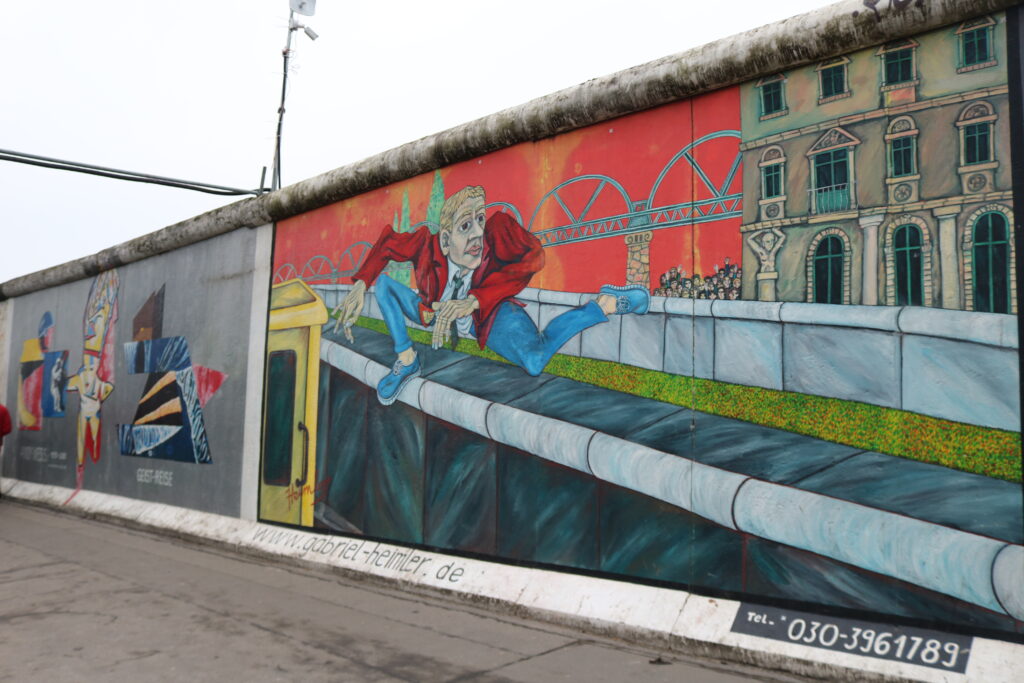
Photo: Noor Oude Brunink
By Noor Oude Brunink
The Yalta Conference, which was held from February 4 through February 11, 1945, is where it all began. In order to discuss what to do with Germany once it had been defeated, Churchill, Roosevelt, and Stalin met. The outcome? Germany would be divided into four occupation zones, each of which would be under the control of the Soviet Union, Britain, France, or the USA.
Despite the fact that the capital was established in Eastern Germany, where the Soviet zone would therefore apply, the Allied powers decided to divide the capital similarly into four zones.
As a result, the Soviet Union was able to impose communism in East Germany while the United States, Britain and France constructed capitalist societies in the other three occupation zones. A capitalist and a communist zone made up Germany. Due to this, the eventual split into two different countries was unavoidable.
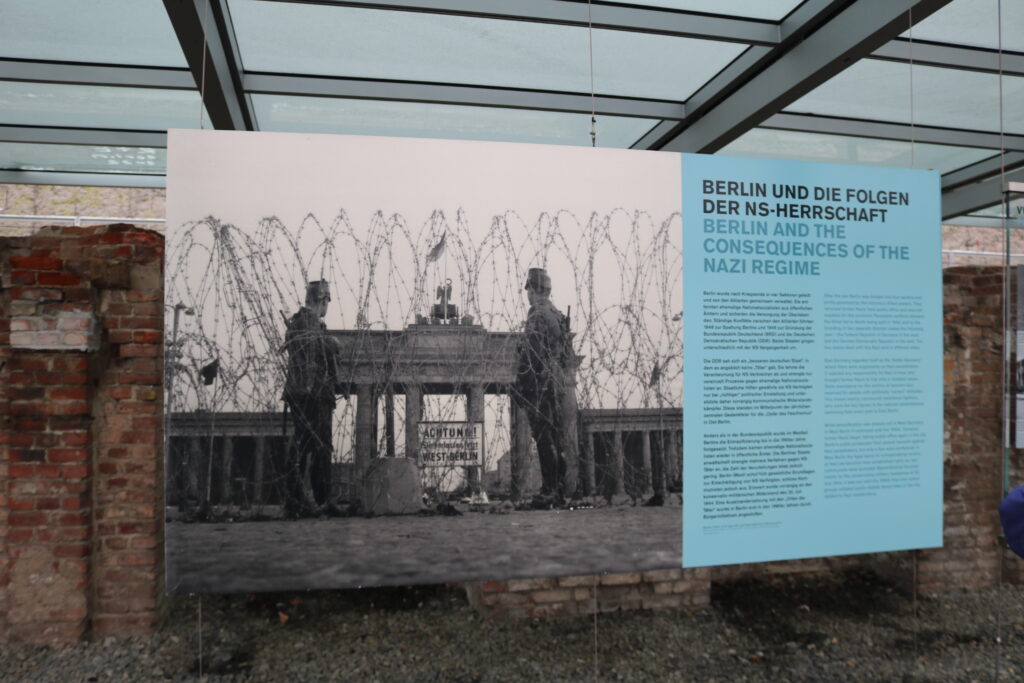
Photo: Noor Oude Brunink
By merging the three western zones, the Federal Republic of Germany (FRG) was established on May 24, 1949. The fact that it was a temporary state was emphasized. On October 7 of that year, the Soviet Union followed with the German Democratic Republic (GDR).
Germany’s economy had a difficult time in the early post-second world war years. Nevertheless, during the Cold War, the GDR’s economy deteriorated. Store shelves were empty, and the national income declined. In East Germany, even the most basic goods were unavailable, and there was great poverty among the population.
However, the FRG’s economy recovered very quickly compared to the GDR’s. The so-called Wirtschaftswunder and the growing prosperity made it possible for the FRG to establish a solid democracy. The West Germans realized how much better off they were than the East Germans.
Propaganda was used in the meantime to convince the population that communism and the planned economy were best for all. For instance, the GDR grew more hostile to the FRG as a free market economy was implemented there.
About 2.5 million East Germans left the GDR due to the totalitarian terror, secret police fear, and economic deterioration. People with higher levels of education moved to the West in particular because there they had a better chance of finding a good job with a higher salary. In order to halt this refugee influx, the Berlin Wall was built in 1961.
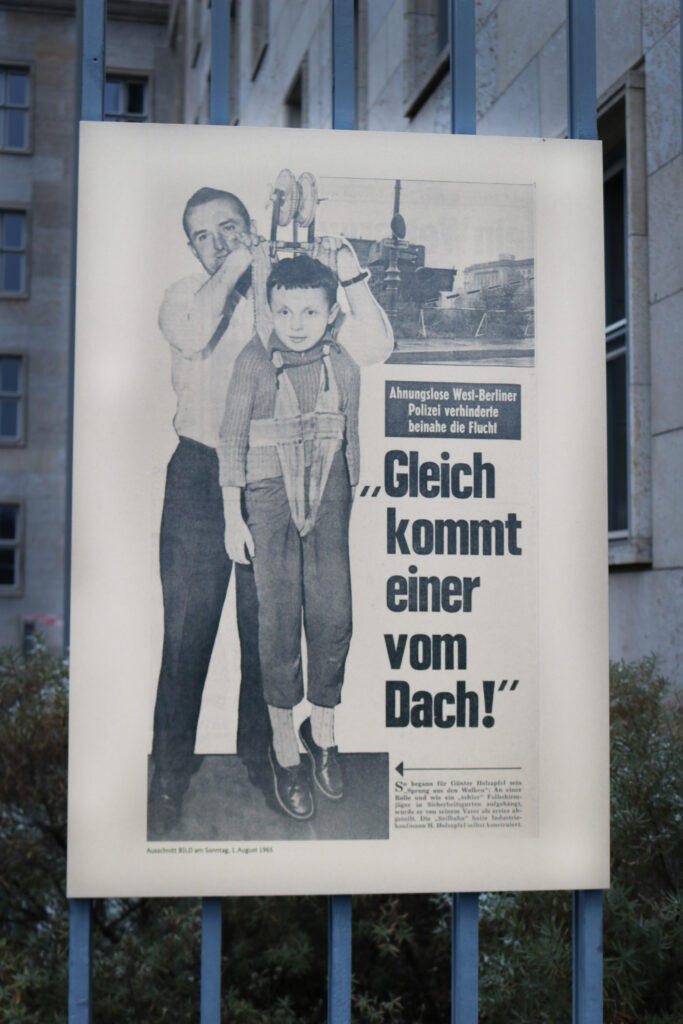
Photo: Noor Oude Brunink
Imprisoned in own country
From this moment on, East Germans could not travel outside the border of the Soviet Union. And this frustrated many Ossis (the informal name for former East Germans living in the GDR). Especially those who knew people from the west saw the huge differences between both zones. Speaking to a former citizen from the GDR (who will be referred to as Lena), she mentioned that receiving worldwide cards from her husband’s brother, who lived and worked in the west, drove her crazy when she was living in the east.
“I had absolutely no desire to remain in the GDR. Everyone would treat you differently after filing an application because they are informed immediately. Colleagues no longer interact with you and there is a lot of fear since you never know what they might do to you”, said Lena.
However, that wasn’t the only awful thing that happened.
She continues: “For instance, they repeatedly threatened to take away my son.” All the threats didn’t stop her. “I would have carried out the same actions even if I had known that the wall would come down and that Germany would be reunited; I have no regrets”, said Lena.
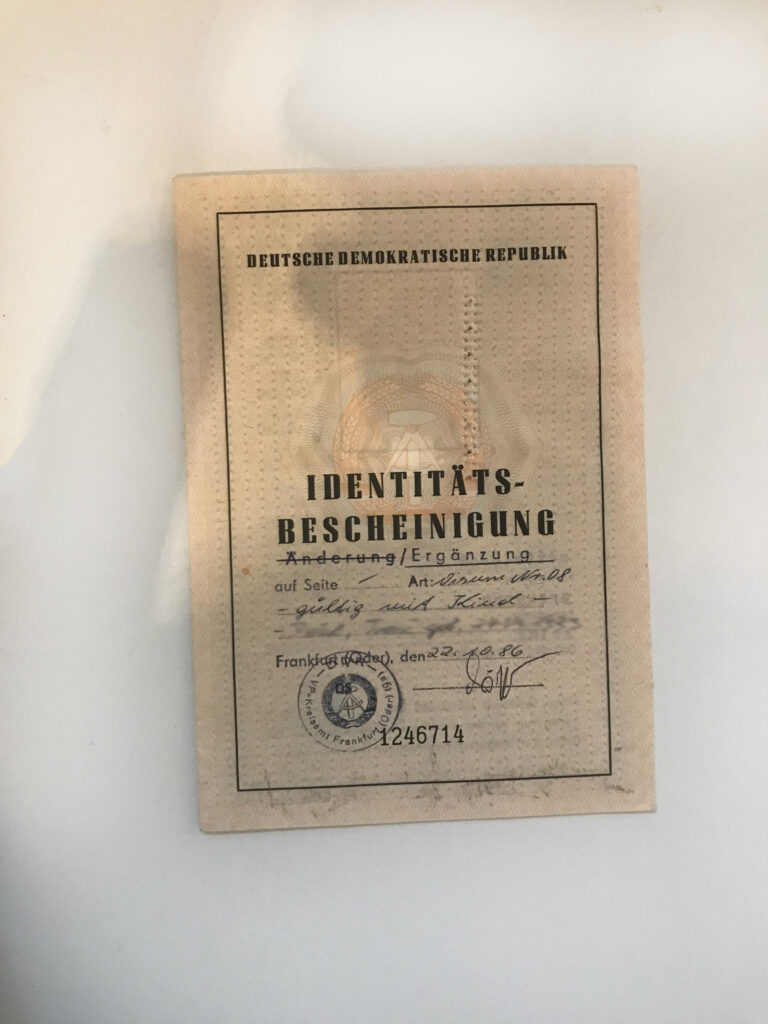
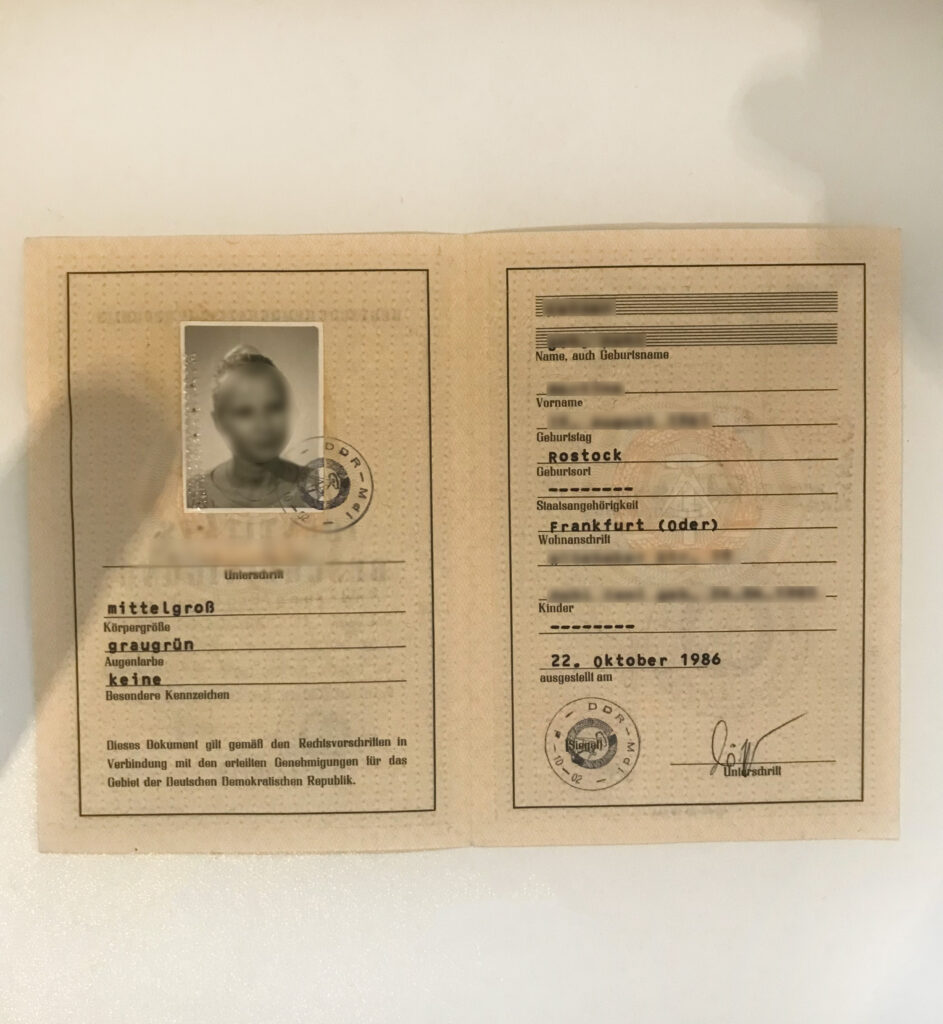
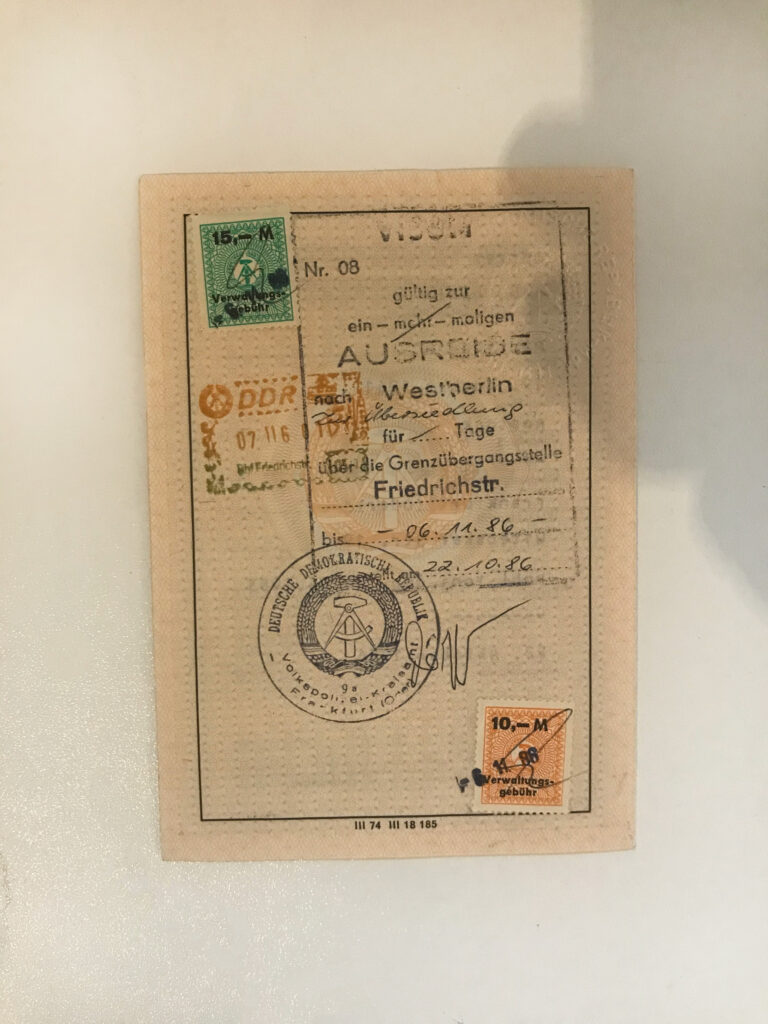
Lena’s documents from the moment she had to leave the GDR. Photos: Noor Oude Brunink
While Lena could leave the GDR eventually, there were others who couldn’t leave after submitting an application to leave the GDR. In January 1982, the Stasi (the East German state security organization) imprisoned Michael Bradler because he wanted to leave the GDR.
After seven declined applications, he decided to approach the border crossing himself and told the border guard he immediately wanted to move to West-Berlin. The border guard 1refused, and proceedings followed in which he was eventually detained in prison.
“They make sure that inmates have no contact with other inmates. For instance, your name is never mentioned; instead, your cell number is, and if you had to cross a corridor, there were lights above, and you had to stop if they were red. At that moment, a different prisoner was moving down the hallway,” said Michael while rubbing his hands.
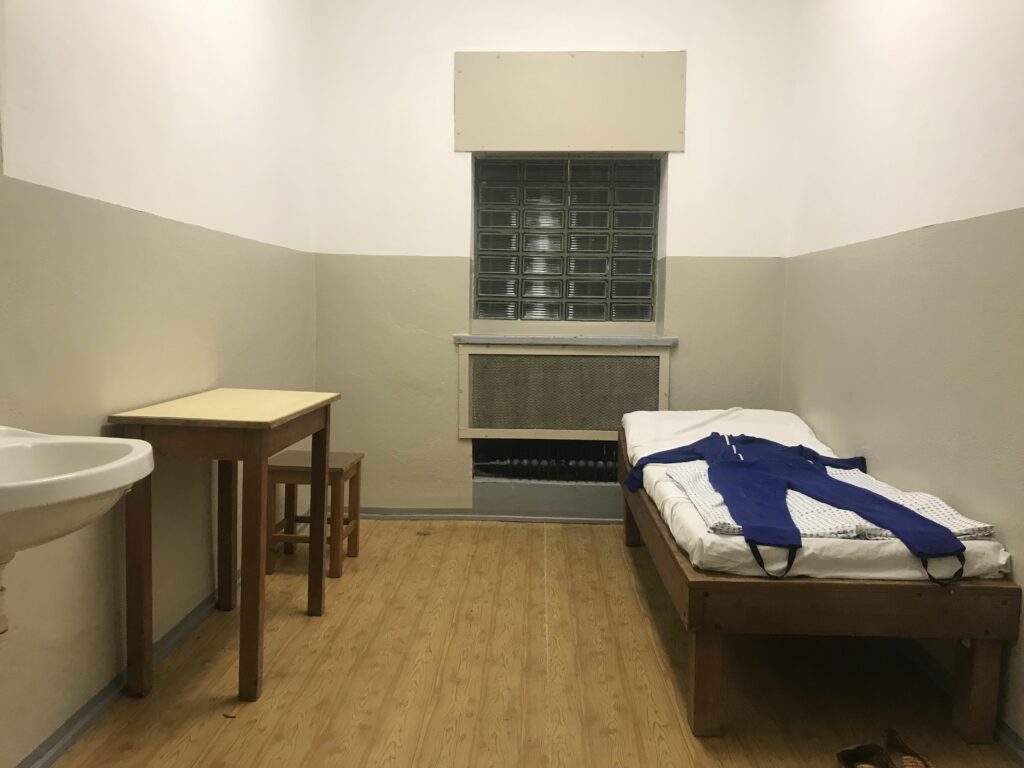
Photo: Noor Oude Brunink
Nevertheless, they wanted to make sure that he withdrawn his application and organized a meeting with his dad who was a member of the SED (Sozialistische Einheitspartei Deutschlands – Socialist Unity Party of Germany) and completely convinced of the GDR’s ideology.
“Either you withdraw your application to leave the country or you are no longer my son,” said Michael’s father. Michael refused to withdraw his application had to stay in prison. He never saw his father again.
After a few months, West Germany ransomed Michael as a political prisoner.
Post-reunification
Tens of thousands of Germans gathered on October 3, 1990 to celebrate the reunification of the two Germanys. And today, 32 years later, several academic publications indicate that there are still significant differences between the lifestyles and perspectives of Germans living in the west and east of the country.
Hans Heijerman (management consultant) and Niels Heijerman (business analyst) explained the reasons for the economic inequalities between East- and West-Germany in their research on the reunification’s impacts. The price increases resulted in a minimum 33 percent decrease in East German industrial production in the first two years following reunification. In addition, the east lost their most important market as a result of these price increases: the former Soviet Union. At the same time, East Germany lost out against its former partners since they were able to maintain cheap pricing because their currencies were not overvalued. The sudden switch to a capitalist system, however, was the largest issue with the East German economy. People weren’t used to entrepreneurship, proactivity, competitiveness, or leadership. Even now, this backwardness is considered to be one of the key factors contributing to German internal inequality.
According to Jan Oude Brunink, who moved to Berlin 10 years ago, it was difficult to adapt for a lot of Ossis. “This weekend someone told me that he woke up in a different country without moving”, said Jan.
In addition to the economic aspect, there are differences in political trust and opinions. The Washington Post researched the differences between east and west Germany. According to them, the reasons why right-wing politicians thrived in the formerly communist east are complicated. Scientists frequently attribute a confluence of anti-leftist worldviews that emerged following the fall of the Berlin Wall and the east European economic crisis. Despite the widespread disillusionment with Western capitalism, few individuals wished for the restoration of communism. Right-wing politicians stepped in to fill the gap right away.
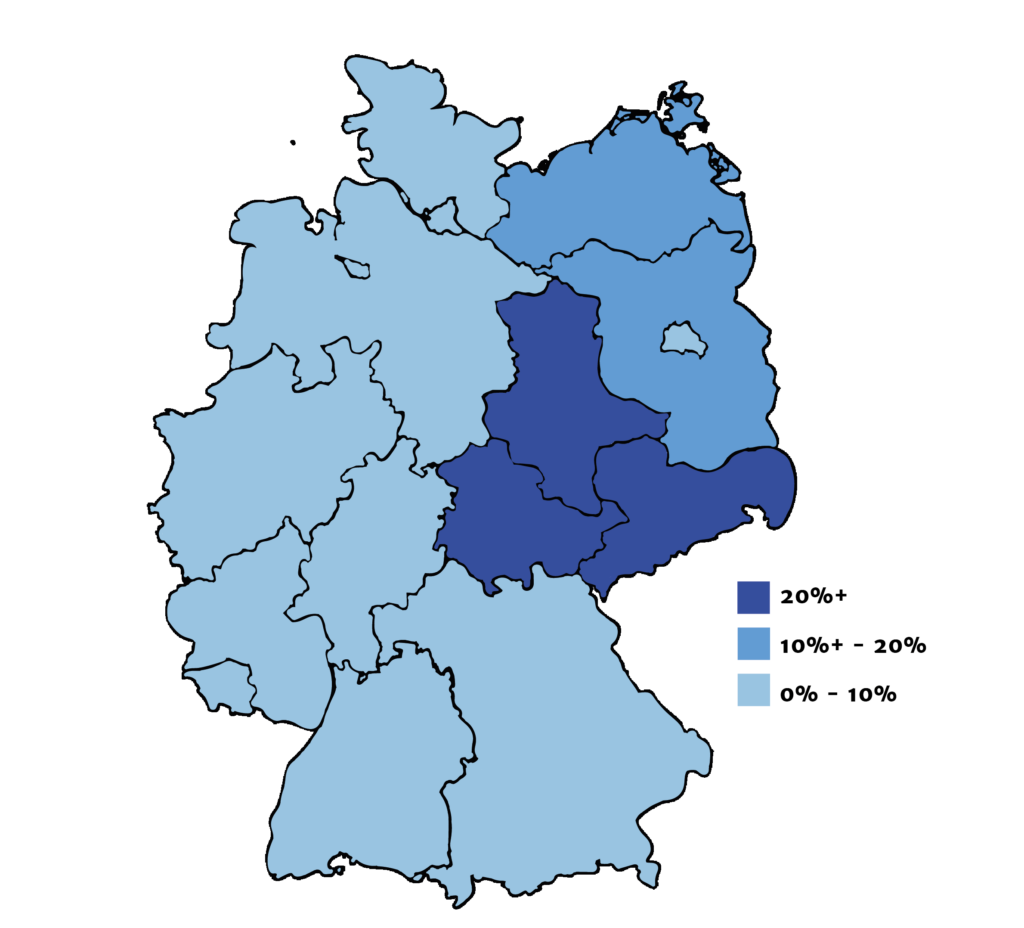
Infographic: Noor Oude Brunink
Source: The Federal Returning Officer
However, East Germany continues to be the source of the majority of Die Linke’s votes. A state in eastern Germany called Thüringen provided 31% of their votes. East Germany unquestionably represents both extremes of the political spectrum.
Die Linke, however, has fewer seats than the far-right AfD (Alternative for Germany). As a result, it may be said that in East Germany, the far right is doing better than the far left.
On top of that, many German voters, especially the older ones, are still turned off by the fact that certain members of the Left were originally affiliated with the Socialist Unity Party (SED), which ruled the East German dictatorship, according to Ben Knight, journalist at Deutsche Welle.
Negative stereotype
Many people from the former East and West, however, disagree with the negative stereotype that goes with an Ossi. They are lazy and will only complain about how hard their lives are nowadays, is something that’s said often.
Ina Lange grew up in Göttingen a city in West Germany. After her husband got a good job in Weimar a city in East Germany, they moved there and stayed for several years. “I loved being there, the people were always nice and not so individualistic. The moment I had to move back to the West it didn’t felt the same, I was so used to the collectivistic culture. Even my children really had difficulties with getting used to the individualistic standard,” said Ina.
Sitting across a table, Udo Janssen, who was born and raised in West Germany said: “There isn’t just one ‘Ossi’, it actually depends on the individual. For people who wish to develop their full potential, those prejudices can be very damaging. We have a lot of friends who were raised and born in the GDR and climbed to leadership positions.” Jan agreed.
Generations
It is a generational thing. The more years will pass, the less people who did experience the German partition will be alive. Germany’s division requires some time to become less evident. If a really united society will ever exist? Nobody can guarantee it. But no country’s society will constantly hold the same views, and that’s okay because you can accomplish considerably more with different individuals than you can with numerous identical clones of one another.
